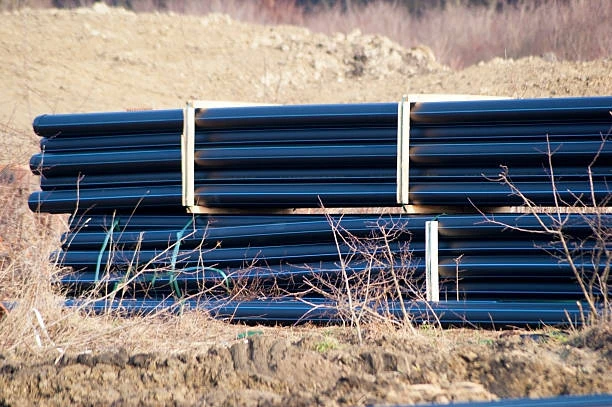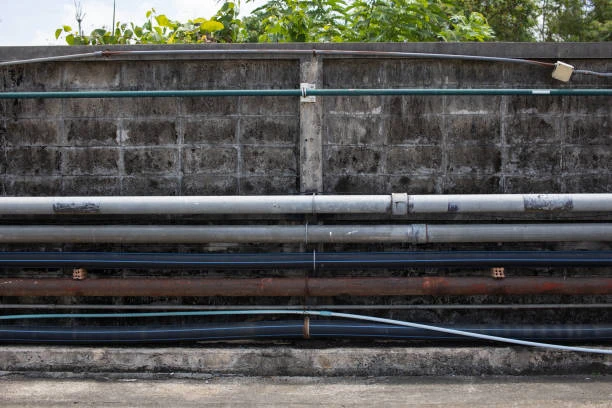In Georgia, officials are conducting rigorous tests on large high-density polyethylene HDPE pipe, emphasizing the critical role of advanced materials in infrastructure development. These tests are aime at assessing the durability and reliability of HDPE pipe in various applications, including water supply systems and stormwater management. A key component of this infrastructure project is the use of pipe press fittings, which play a vital role in ensuring leak-proof connections and overall system efficiency.
The Importance of HDPE Pipes
High-density polyethylene pipes have gained popularity in recent years due to their numerous advantages over traditional materials such as metal or concrete. HDPE pipes are lightweight, resistant to corrosion, and capable of withstanding extreme temperatures. This makes them ideal for a variety of applications, from municipal water systems to industrial processes.

Advantages of HDPE Pipes
- Durability: HDPE pipes have a long service life, often exceeding 50 years, which reduces the need for frequent replacements.
- Flexibility: The flexibility of HDPE allows for easier installation, especially in challenging terrains where traditional materials might struggle.
- Resistance to Chemicals: HDPE is resistant to a wide range of chemicals, making it suitable for transporting various substances without risk of degradation.
Role of Pipe Press Fittings
Pipe press fittings are crucial in creating secure and efficient connections between HDPE pipes. Unlike traditional welding or soldering, press fittings offer a quicker and more reliable method of joining pipes. This method reduces installation time and labor costs while ensuring that joints remain leak-proof under pressure.
Benefits of Using HDPE pipe Press Fittings
- Speed of Installation: Press fittings can significantly reduce installation time, allowing projects to be complete more efficiently.
- Leak-Free Connections: The design of press fittings ensures a tight seal, minimizing the risk of leaks that can lead to costly repairs and environmental issues.
- Reduced Labor Costs: With less time required for installation, labor costs are lower, making the overall project more economical.
Testing and Evaluation of HDPE Pipe in Georgia
Georgia officials are meticulously testing the large HDPE pipes to ensure they meet the necessary standards for public safety and environmental protection. This testing includes assessing the pipes’ resistance to pressure, their structural integrity, and their ability to withstand external forces.
Key Testing Procedures
- Hydrostatic Pressure Testing: This test evaluates the ability of HDPE pipes to hold water under pressure, simulating real-world conditions they will face in service.
- Environmental Stress Crack Resistance (ESCR) Testing: ESCR testing measures how well the pipes can resist cracking under various environmental conditions, particularly when exposed to certain chemicals.
- Long-Term Hydrostatic Strength Testing: This test examines how HDPE pipes perform over extended periods under constant pressure, ensuring their longevity and reliability.
Environmental Impact and Sustainability
As municipalities focus on sustainability, the adoption of HDPE pipes and pipe press fittings is a step in the right direction. HDPE is 100% recyclable, and its lightweight nature reduces the carbon footprint associated with transportation and installation. Additionally, the use of pipe press fittings minimizes waste during installation, contributing further to environmental sustainability.
Community Engagement and Education
Georgia officials recognize the importance of community involvement in infrastructure projects. Public meetings and educational workshops are being held to inform residents about the benefits of HDPE pipes and . Engaging the community helps build trust and ensures transparency throughout the testing and implementation process.
Future of HDPE pipe in Infrastructure
The results of the testing in Georgia are expecte to pave the way for broader adoption of HDPE pipes and pipe press fittings in future infrastructure projects. As municipalities continue to invest in updating aging systems, the demand for reliable.
Innovation in HDPE pipe Technology
With ongoing research and development, the future of HDPE technology looks promising. Innovations such as smart pipe systems, which incorporate sensors to monitor performance in real-time, are on the horizon. These advancements will further enhance the efficiency and reliability of water distribution systems.
Conclusion
The ongoing testing of large HDPE pipes in Georgia is a crucial step in ensuring the safety and efficiency of the state’s infrastructure. By utilizing advance materials and innovative technologies, including pipe press fittings, officials are committe to providing reliable water supply systems for the community.
In summary, the testing of HDPE pipes in Georgia highlights their reliability and efficiency, essential for modern infrastructure projects. Their adoption promises enhanced sustainability and cost-effectiveness.
FAQs
- What are pipe press fittings? Pipe press fittings are connectors that join pipes without the need for welding.
- Why are HDPE pipes advantageous? HDPE pipes are lightweight, durable, resistant to corrosion, and have a long service life.
- What tests are on HDPE pipes? Testing includes hydrostatic pressure testing, environmental stress crack resistance testing.
- How do pipe press fittings contribute to sustainability? They reduce waste during installation and minimize the environmental impact of transporting traditional materials.
- What is the future of HDPE technology? Future developments may include smart pipe systems that monitor performance.


















